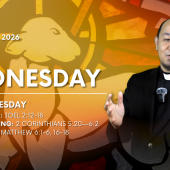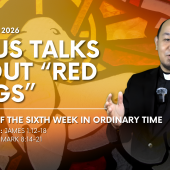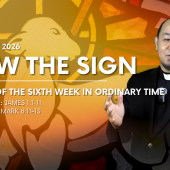The heart is the storehouse

Sunday, 22 Sunday in Ordinary Time
Daily Readings: Deuteronomy 4:1-2,6-8; James 1:17-18, 21b-22,27 & Mark 7:1-8,14-15,21-23
Reflection Date: August 29, 2021
As we take a quick running glance at the liturgical readings of the day, we come across that in the First Reading (Deuteronomy 4:1-2,6-8). Moses tells the Israelites to observe the commandments that God gave them. He urges them to be imbued by the true spirit of the commandments and thereby live by them.
While the responsorial Psalm (Ps. 15:2 - 5) says, "Those who do justice will find favor with God." In the Second Reading (Jam 1:17-18, 21b-22,27) James teaches that Christians should be doers of the Word. In the Gospel Reading (Mk 7:1-8,14-15,21-23), Jesus teaches that it is that which comes from our hearts that defiles us.
A priest who was careful with the rubrics of the Mass was irritated one day when the Mass servers committed a mistake. He said to them aloud, "Stupid, don't do that again." He was preoccupied with following the ritual precisely than with observing charity in his dealings with the altar servers.
Jesus accuses the Pharisees and Scribes, reminding them of Isaiah's words, "these people honor me with their lips, but their hearts are far from me." Jesus, in a way, was stressing on a disposition of interior purity, and that is what counts before God.
The Gospel reveals to us Jesus disputing with the scribes and Pharisees, whose heart was hard and cold, often hiding under a religion of rituals and appearances. Jesus condemns superficial faith, the piety that does not touch the heart, soul, and conscience. Moreover, Jesus shows compassion, understanding, and mercy in the face of human miseries and sins.
First things first: let us make sure that our hearts are right with God and desire the honor of God and the good of people. All things are for God's honor and the salvation of people. When we have set our hearts on this, we can go about the external rituals of our religion, and we will be pleasing to God.
Jesus declares in today's Gospel that the food that we eat cannot defile a person. Because as the foods are consumed, it goes through a process through our digestive system, and those unwanted substances pass away naturally. This understanding proclaimed by Jesus freed the Gentile converts from following the Mosaic laws. However, some Christians who converted from Judaism continued to observe their traditions while observing faithfully Christian practices and rituals.
On the other hand, that which comes from within the person, i.e., from the heart, is what defiles a person. Take, for example, in the Old Testament, David's lust for the wife of Uriah led him to adultery and murder (2 Samuel 11). So also, the two judges had a lust for Susanna and falsely accused her of adultery. Daniel exposed their wickedness, and they were put to death (Daniel 13).
The heart is the storehouse of all that is good and bad. In Luke 6: 45, we read: "The good person out of the good treasure of his heart produces good, and the evil person out of his evil treasure produces evil, for out of the abundance of the heart his mouth speaks."
Jesus explicitly says that "…out of the heart come evil thoughts, fornication, theft, murder, adultery, coveting wickedness, deceit, licentiousness, envy, slander, pride, foolishness. All these evil things come from within, and they defile a man."
The followers of Jesus and each of us are requested to root out these defilements from the hearts before they could be translated into evil deeds, which in their turn would consume them (Matthew 5: 21 – 42). St. Augustine, who experienced such defilements, could say: "our hearts are restless … until they rest in you, O Lord."
Let us sow good deeds in our hearts and all efforts to become persons of love and compassion. Let us keep our hearts in the right place about God and people.
Joseph Cardozo SJ | Contributor
Radio Veritas Asia (RVA), a media platform of the Catholic Church, aims to share Christ. RVA started in 1969 as a continental Catholic radio station to serve Asian countries in their respective local language, thus earning the tag “the Voice of Asian Christianity.” Responding to the emerging context, RVA embraced media platforms to connect with the global Asian audience via its 21 language websites and various social media platforms.














